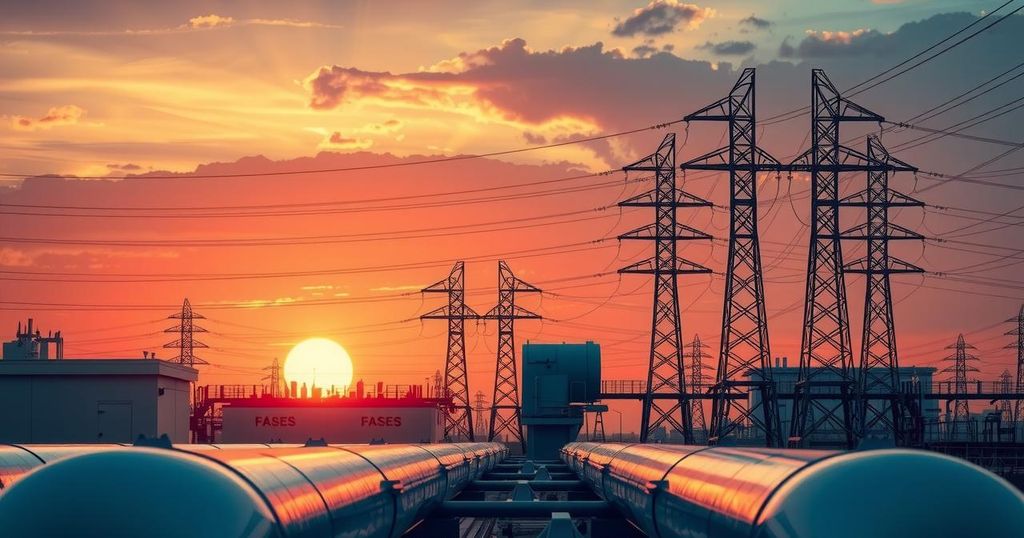Iraq Navigates Energy Challenges Amid U.S. Sanction Changes on Iran
Iraq’s situation regarding gas and electricity imports from Iran is critical following the lifting of sanctions exemptions on March 8, 2024. The Iraqi Parliament’s Economic Committee is seeking urgent dialogue with the U.S. to address energy supply concerns. Simultaneously, Iraq is actively pursuing alternative energy projects, including agreements with Turkmenistan and Qatar.
Iraq is facing challenges in sustaining its gas and electricity imports from Iran after the U.S. lifted Iran’s exemption from sanctions on March 8, 2024. This prompted the Chairman of the Economic Committee of the Iraqi Parliament to engage in discussions with the U.S. Charge d’Affaires in Baghdad regarding the urgent implications for Iraq’s energy stability. The situation is particularly critical as the absence of Iranian gas could lead to electricity shortages during the summer months.
During the meeting, Atwan Al-Atwani, Chairman of the Economic Committee, articulated the severe consequences of a halt in gas imports from Iran, stressing the potential collapse of Iraq’s electricity system. The U.S. official, Daniel Rubenstein, acknowledged the concerns raised and assured that he would communicate these issues to the U.S. government, emphasizing that natural gas imports had not yet been encompassed by the sanctions.
Iraq and Iran maintain a significant energy agreement under which Iran is contractually obliged to export 50 million cubic meters of gas daily to Iraq, valued at approximately six billion dollars annually. Moreover, Iraq has previously secured a five-year contract for the procurement of 400 megawatts of electricity from Iran dating back to July 2022. Iraq has initiated efforts to diversify its energy sources, including potential gas imports from Turkmenistan and liquefied natural gas (LNG) from Qatar.
The construction of an LNG storage terminal in Faw Port is underway, with Qatar poised as a principal supplier. Furthermore, the revived Qatar-Turkey gas pipeline proposal indicates opportunities for Iraq to bolster its energy infrastructure. Plans are also in consideration to connect Iraq to the Gulf Cooperation Council’s electricity grid, a project aimed at alleviating dependency on Iranian power through a new transmission line from Kuwait to Basra.
Significant investments are essential for transitioning towards greater energy independence. In July 2023, Iraq entered into a $27 billion contract with Total Energy, aimed at enhancing the country’s overall energy production abilities through multi-faceted projects in oil, gas, and renewable sectors. However, the urgency of the current situation necessitates immediate actions, as reliance on Iranian gas remains high, and Iraq currently lacks viable alternatives to meet its electricity demand.
In conclusion, Iraq’s energy security is at a precarious juncture due to the lifting of Iran’s exemption from U.S. sanctions. Discussions with U.S. officials signify the urgency to devise solutions to avert electricity shortages. While Iraq pursues alternative energy sources from Turkey, Qatar, and domestic projects, significant investments and time are required to successfully transition away from dependence on Iranian gas. Immediate measures are crucial to address potential energy crises, particularly as summer approaches.
Original Source: www.tehrantimes.com




Post Comment